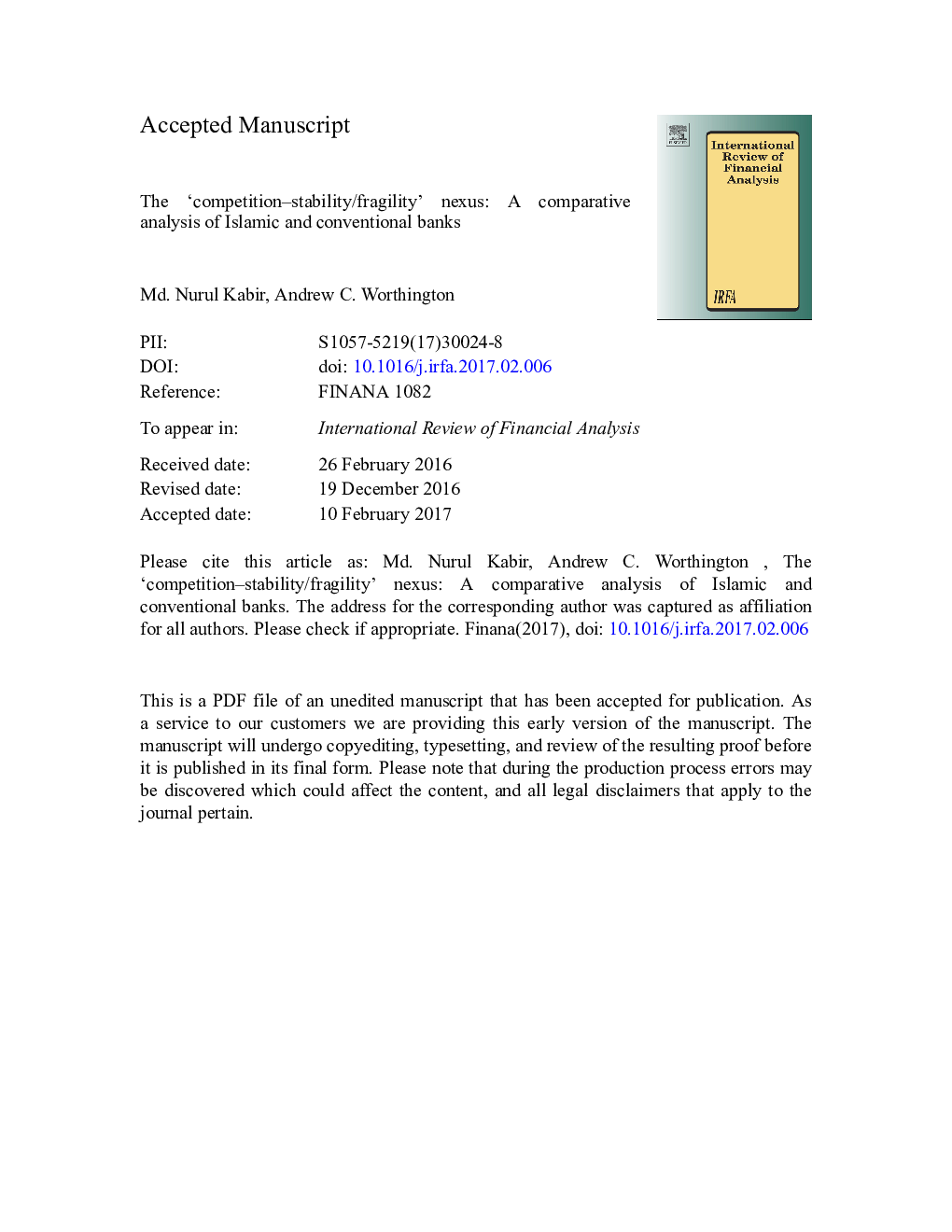| Article ID | Journal | Published Year | Pages | File Type |
|---|---|---|---|---|
| 5084394 | International Review of Financial Analysis | 2017 | 70 Pages |
Abstract
The 'competition-stability/fragility' nexus is one of the more debated issues in the banking literature. However, while there is ample evidence concerning the relationship between competition and stability/fragility in different countries and regions, no prior study investigates this in the context of Islamic and conventional banks. We do this using data on both types of banks drawn from 16 developing economies over the period 2000-12. We measure the lack of competition using the Lerner index, and stability using both accounting-based measures, comprising the Z-score and the nonperforming loan ratio, and market-based measures, including Merton's distance to default. We employ panel vector autoregression and two-stage quantile regression to estimate the relationship. Our results lend support to the competition-fragility hypothesis in both Islamic and conventional banks. We also find the magnitude of the market power effect on stability is greater for conventional banks than Islamic banks. Lastly, banks in the median quantile of stability have a greater ability to reduce credit risk through gaining market power than banks in the lower and upper quantiles.
Keywords
Related Topics
Social Sciences and Humanities
Economics, Econometrics and Finance
Economics and Econometrics
Authors
Md. Nurul Kabir, Andrew C. Worthington,
